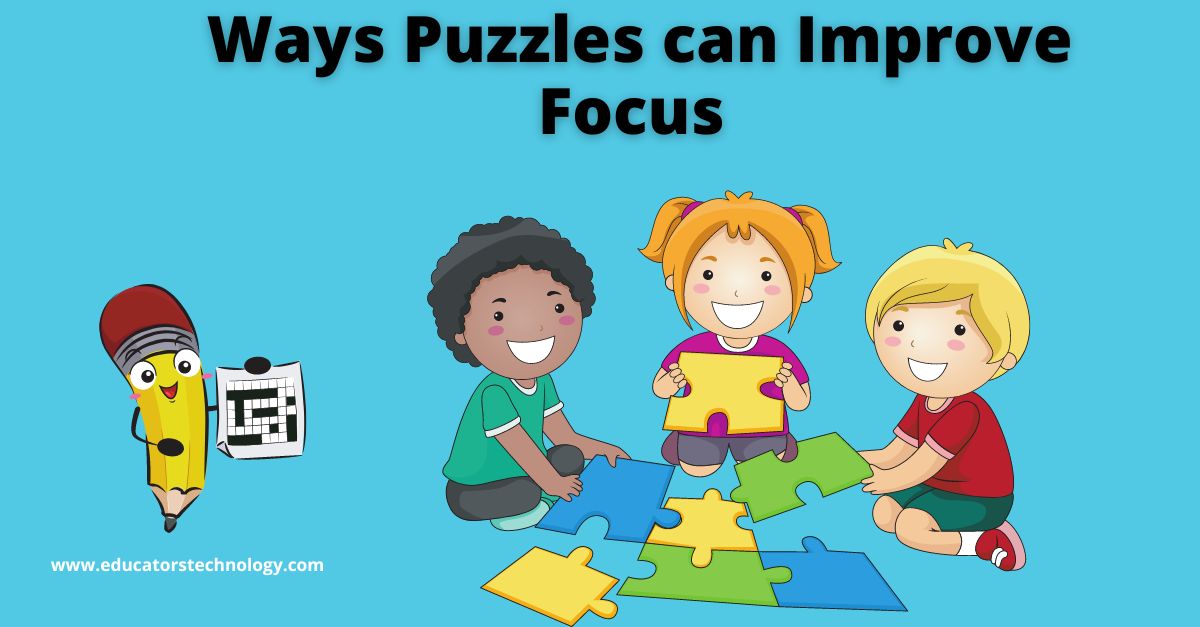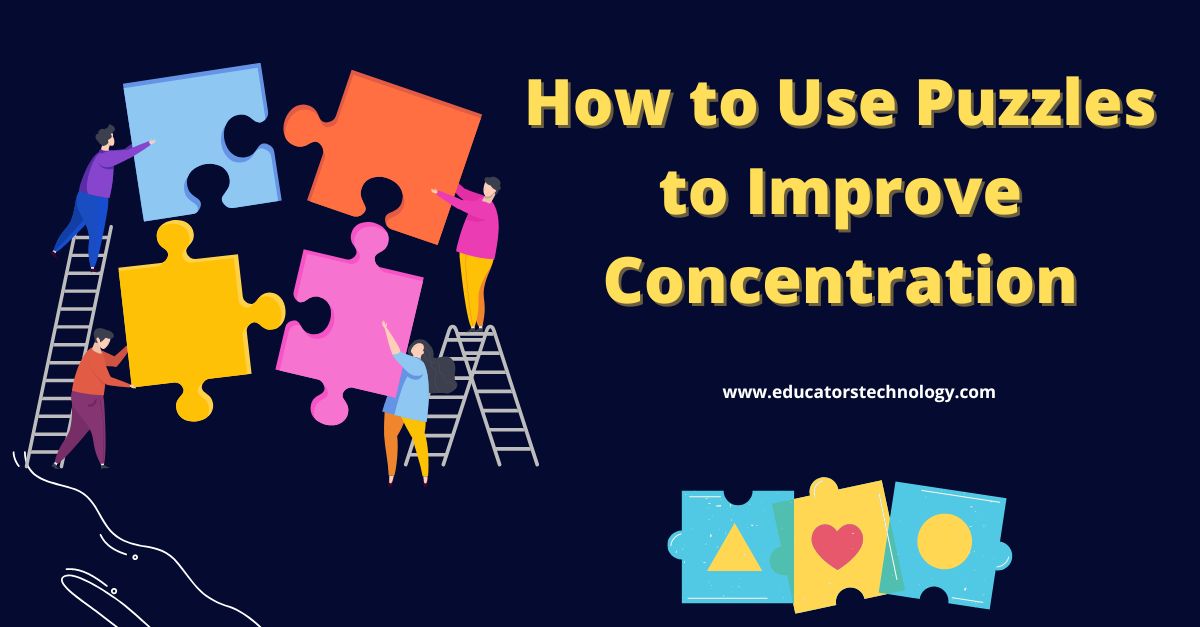
DISTANCE LEARNINGNews
How To Use Puzzles To Improve Concentration?
Author: By Med Kharbach, PhD
Go to Source
Concentration is a complex brain function. It involves a combination of various cognitive abilities necessary for holding your attention on something without being distracted by anything else. Like any other skill, concentration is something that improves with practice, and what’s better than ‘solving puzzles’ to improve one’s concentration?
Complete puzzles are usually considered to be large jigsaw puzzles that can be as big as 32 inches. Still, you can buy 1,000-piece puzzles and smaller ones, depending on your puzzle-solving skills, i.e., beginner or professional.
Let’s take a closer look at puzzles and their effect on concentration.
1. Number Or Word Puzzles
Number or word puzzles are a fun and effective way to improve your concentration skills. The more you train your mind, the better you will be at focusing on what matters most.
Number puzzles include things like Sudoku and Jumble. The idea is to fill the squares with numbers so that each row, column, and 3×3 box has all the numbers 1 through 9 exactly once. This helps you learn to look at a problem from multiple angles because it forces you to think critically about how each piece fits together. They are also good for improving logic and problem-solving skills.
Word puzzles are similar to number puzzles, except instead of numbers, they use words. You might have seen them as “fill-in-the-blank” games in newspapers or magazines where they give you clues about something like a person’s name or occupation and then leave one blank space for you to fill in the correct answer — for example: “Name an occupation starting with ‘A’?” The puzzles are usually pretty easy if you’re good with words and spelling but still challenging. They can be good for improving vocabulary and spelling skills.
2. Jigsaw Puzzles
Jigsaw puzzles are a great way to improve your concentration because they involve completing a task that requires working memory, visual perception, planning, and motor skills.
Here are some benefits of playing jigsaw puzzles:
Improve Concentration: Playing puzzles helps you sharpen your concentration skills and improve your ability to focus on a particular task for longer periods of time.
Relieve Stress: Playing puzzles reduce stress levels by giving your brain something challenging to do. This is because when you play a puzzle game, you have to use your brain power to figure out how each piece fits into place correctly before moving on to another piece of the puzzle. Playing puzzles will also keep you busy, which can reduce stress levels as well as boredom!
3. Logic Puzzles
Logic puzzles are a fun way to exercise your brain and keep it in tip-top shape. They are also a great way to boost your concentration power, which is vital for success in all aspects of life.
Try to play mind games that require thinking outside the box and using your imagination. These sorts of games help you develop new ideas and solve problems more creatively. They also stimulate the left side of the brain, which is responsible for logical thinking.
If ‘mind games’ is not your cup of tea, you can practice solving crossword puzzles as often as possible. This will help develop your verbal skills and increase your vocabulary level too. Crossword puzzles are also good for exercising your memory since they require you to memorize information like words and definitions before you can put them in their correct positions on the grid.
4. Board Games
Many people turn to board games for fun and relaxation. But board games can be more than just entertainment: they can also be used as tools to improve your concentration.
Strategy games like ‘chess’, ‘checkers’, and ‘Go’ help players develop their decision-making skills. They also require you to focus your ‘attention’ on one thing at a time – which helps build your capacity for concentration.
If you live in a noisy environment that continuously disrupts your concentration, try wearing earplugs or headphones when you play board games so that you won’t be distracted by outside noise and sounds.
You can also use board games to relax after a stressful day or activity, such as an exam or an argument with your parents!
5. Puzzles Improve Memory and Problem-Solving Skills
Solving puzzles requires you to use logic and reasoning skills. You have to look at each piece individually and then group them based on their relationship with other elements.
Puzzles also require some spatial reasoning skills because many puzzles involve rotating and moving pieces around until they fit into place correctly. These exercises help develop those brain thinking areas, which improves concentration in everyday life situations where spatial reasoning is required — like driving or cooking dinner!
Puzzles help with memory because we are using both sides of our brains at once when we are solving them which increases blood flow throughout the brain and promotes better recall skills as well as faster learning capabilities.
Conclusion
The idea of using games as therapy isn’t a new one. It goes back thousands of years. Ancient Greeks used board games like checkers and chess as part of their medical treatment.
In contrast, Native American cultures used storytelling games called “parables” as part of their religious ceremonies. Today there are many therapeutic games, including word searches and logic puzzles like crosswords or Sudoku. These days we call them “brain teasers,” but they’re all basically the same thing: a fun challenge that stimulates your brain without requiring much thought at all!

